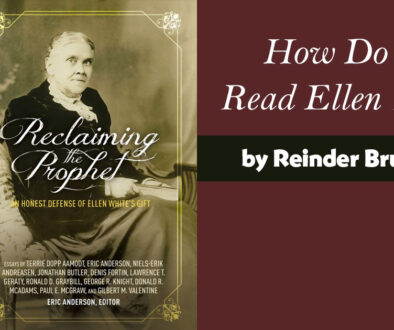The Road Less Traveled, but Highly Recommended
by Preston Foster
They don’t listen to me (though they should — if you want to expand your market share, you listen to customers that don’t buy from you), but conservative Republicans have a hopeful future. Alas, change is required to inherit it.
Sadly, I doubt that they will embrace the opportunity.
I teach Political Science. My students are, primarily, relatively affluent African Americans and Latinos. Most, but not all of them are Seventh Day Adventists. This means they, generally, have progressive politics, but conservative folkways and personal ethics.
They voted for Obama. They also like Ron Paul.
Their affinity with Mr. Obama is obvious: African Americans and, increasingly, Latinos are reliable Democratic voters. These students also fit the profile of other parts of the Obama coalition: young, highly educated, from (mostly) “blue” states, and politically liberal.
However, they are not quite as liberal as their parents or me.
Like many college students, Ron Paul’s message of freedom and small government is attractive to them. These kids expect to be in the upper income brackets — and soon (I don’t doubt them). The notion of increasingly progressive taxes doesn’t make them happy. Although, in the near term, my students may benefit from affirmative action (for which they see no “stigma”), they know that it is going away. More than their boomer parents, these students are sanguine about that. They see the solution to many of the problems that they care about (i.e., jobs, education, family structure, crime) as having market-based or other traditionally conservative features.
The problem for Republicans? These students do not like the conservative social agenda. Reading my informal, unscientific poll, I see certain surprising (and sometimes disconcerting) trends. They are, generally, against abortion, but are pro-choice. They are anti-drug use, but for the legalization of pot. They are against gay marriage, but in favor of marriage equality and gay rights. They are for school choice, but for separation of church and state. In short, they are progressive libertarians.
The traditional Republican social agenda is, in their eyes, a big government, personally intrusive one. Using the government to enforce or shape a Christian world-view, is, to them, a vestigial and more than slightly ominous theocratic threat. The unsubtle remarks about rape and abortion by unsuccessful Senate candidates Todd Akin and Richard Mourdock re-enforced this view.
The recent election detonated the much feared “demographic time bomb.” If Republicans are to be viable in the polls (particularly in presidential election years), they need to consider broadening their base thereby becoming more inclusive. Conservatives could accomplish this without sacrificing their ideals. They simply have to internalize the words of their icon: “Government isn’t the solution, it’s the problem.”
Except, ironically, the non-Tea Party base of the party, the Republicans seem to like big government — when it is employed to accomplish their social agenda. Thankfully, at least for now, theocracies remain unpopular.
A small government, pro-freedom agenda is attractive to young people (Ron Paul is a rock-star on many college campuses). Conservatives have won on many issues, particularly drugs, abortion, welfare, and taxes. The public has moved in their direction on all of these matters. They could close the sale by taking their own advice: let private centers of influence (i.e., churches, social advocates) continue to persuade individuals to make smart and moral choices. Campaign on minimalist government, low taxes, and personal freedom. There’s a large and diverse market for that platform.
Of course, I am playing someone else’s cards for them. I might be wrong. However, it seems to me conservatives have the right cards, but often overplay their hand. Kenny Rogers was right: you gotta know when to fold ‘em.



